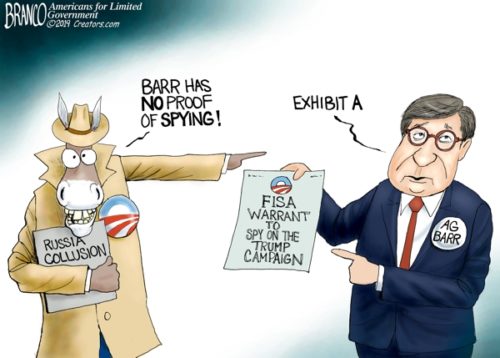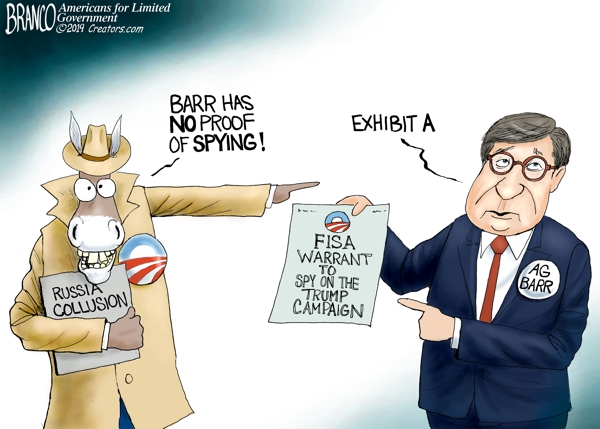
When you get right down to it, the only reason the Foreign Intelligence Surveillance Act (FISA) was ever adopted in 1978 in the first place was after disclosures by reporter Seymour Hersh in the New York Times on Dec. 22, 1974 of a highly classified domestic spying operation.
The report, entitled, “Huge C.I.A. operation reported in U.S. against antiwar forces, other dissidents in Nixon years,” uncovered surveillance on U.S. soil of antiwar protesters, members of Congress and others. Hersh relied on informants disclosing the classified program and talking about it. There is no question those disclosures were illegal.
But they were necessary to get Congress to act. It led directly to the creation in 1975 of the select committee led by the late Sen. Frank Church (D-Idaho), and then later the adoption of FISA, which was supposed to prevent that sort of political surveillance from ever occurring again.
Other disclosures of mass surveillance by the federal government, such as to reporter Glenn Greenwald in 2013, revealed a spying program so sweeping that it, in former National Security Agency contractor Edward Snowden’s words, “targets the communications of everyone.” But the only reason we found out was because Snowden broke the law and gave evidence of the classified surveillance programs to Greenwald.
In its most recent iteration, the Obama administration had a spying operation on the Trump campaign in 2016, investigating whether then-candidate Donald Trump and his campaign were Russian agents and conspiring with Russia to hack the Democratic National Committee (DNC) and John Podesta and put the emails on Wikileaks. We now know, based on Special Counsel Robert Mueller’s finding, that there was no conspiracy between Trump and Russia.
The only reason we know as much as we do about the 2016 episode was because the Senior Director for Human Rights and Human Freedoms of the McCain Institute, David Kramer, was given the dossier alleging the conspiracy by former British spy Christopher Steele, the document’s author. Kramer then gave it to Buzzfeed reporter Ken Bensinger, who read it, took pictures of it and had it published in Jan. 2017.
Because it was published, the American people were able to later find out that it had been used as the basis of top secret FISA warrants that were taken out against former Trump campaign advisor Carter Page starting in Oct. 2016. That means upon inclusion in the FISA warrant, the Steele dossier contained classified information. Leaking it therefore was illegal, too.
And yet, if it had not been published, the domestic spying operation in 2016 might have never been fully revealed.
It is in this context that we must view the prosecution and extradition of Wikileaks founder Julian Assange to the U.S. for his role in publishing the Chelsea (formerly Bradley) Manning disclosures from the Iraq and Afghanistan wars, which included incidents of collateral damage where civilians were killed by U.S. forces. Manning was court martialed for the disclosures. Now Assange is being prosecuted by the Justice Department for publishing and allegedly assisting Manning with the hacking.
The dilemma here comes with going after the publisher of the classified information, in this case Assange, but it could be any journalist who receives this type of information and exposes it and is accused of facilitating the leak.
The freedom of the press to publish even if it includes classified information is protected under the First Amendment and was upheld in the landmark New York Times Co. v. United States (1971) Supreme Court ruling that allowed the Pentagon Papers to be published — which revealed a Department of Defense study that documented U.S. involvement in the assassination South Vietnamese President Ngo Dinh Diem in 1963, the ineffectiveness of U.S. bombings in North Vietnam and other classified information.
The American people do not get to choose what sorts of activities are revealed in this manner, but they and their representatives in Congress are often called upon to react to them and in some cases, enact reforms to prevent such wrongdoing from recurring.
The case of Julian Assange is not much different. On one hand, he published classified information on a regular basis that was submitted to Wikileaks that many feel was damaging to national security. On the other, he was facilitating the public interest in the same manner as other national security journalists by reporting accurate information, albeit classified, about the conduct of U.S. foreign policy.
Whether Assange was a participant in the theft of the classified information is the subject of the prosecution that will have to be proven in court assuming he does not plead guilty. The fact that he as the publisher is being targeted in this case, however, is not really cause for celebration. Instead, this will undoubtedly have a major chilling effect on the freedom of the press of journalists to uncover the next time the government has a mass surveillance program or worse that threatens the liberty of the American people.
Robert Romano is the Vice President of Public Policy at Americans for Limited Government. Reproduced with permission.
